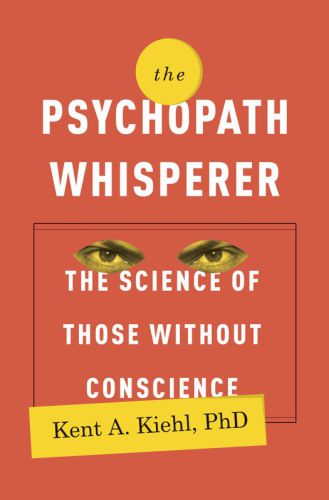
The Psychopath Whisperer
The Science of Those Without Conscience
کتاب های مرتبط
- اطلاعات
- نقد و بررسی
- دیدگاه کاربران
نقد و بررسی

March 24, 2014
In this compassionate study, Kiehl, professor of psychology, neurosciences, and law at the University of New Mexico, attempts to provide a way to understand and improve the lives of psychopaths. His opening chapter describes his first visit to a prison as a graduate student and his first encounters with psychopaths. Kiehl’s goal is not to sensationalize, but rather to learn and assist; that helping psychopaths is his ultimate goal is evident in the nonjudgmental and caring manner in which he tells his stories. His pedigree also speaks volumes: he has devoted a good portion of his career to this oft-maligned population, conducting the first fMRI study (Functional Magnetic Resonance Imaging) on imprisoned psychopaths, and has investigated treatment methods that break the traditional, detrimental modes of deterrence and defiance. He offers insights into psychopathic symptoms and diagnostic criteria, but perhaps most innovative is his focus on prisons, which house a disproportionate number of psychopaths relative to the general population. Neuroscience, Kiehl concludes, has the potential to change the judicial experience of psychopaths and our own concepts of free will. With such observations, this book may allow psychopaths to transition from a cultural spectacle to suffering individuals that might, in no small part due to efforts like Kiehl’s, be able to receive help.

April 1, 2014
A world-renowned researcher of psychopaths delves into the origins of their behavior, especially as they relate to the inner workings of the brain. Psychopaths are at once terrifying and magnetic. Marked by an absence of empathy or remorse and possessing a seemingly insatiable appetite for criminal activity, the "psycho" has long been a recurring subject in fictional and true-life media. But until recently, little was understood about what made these offenders tick. Kiehl (Neuroscience, Psychology, and Law/Univ. of New Mexico) spent decades investigating the psychological and neurochemical makeup of psychopaths. He was a pioneer in using MRI machines to scan the brains of imprisoned psychopaths and also worked with Dr. Robert Hare, the inventor of the Psychopathy Checklist, an important tool used in psychological diagnostics. By scanning and analyzing the brains of hundreds of people who met the psychological criteria for psychopathy, most of them prison inmates, the author discovered that a majority displayed a significant abnormality in the same exact region of the brain--a huge breakthrough. Kiehl writes about the cutting-edge science involved in his research using relatable language and visual data, and he weaves several fascinating case studies throughout the technical discussion, giving readers a close look at how locating different electrical impulses in the brain can provide a more nuanced understanding of psychopathic behaviors. He reveals that one in four inmates in maximum security prisons is a psychopath, a number that lends urgency to his research but that also raises complicated moral and legal questions. For example, if a teenager displaying troubling behavior patterns produces a brain scan that matches the abnormalities clinically associated with psychopaths, should any action be taken? Alternatively, if a psychopath is on trial for murder, should these abnormal brain scans be considered evidence? Kiehl navigates these issues and more with compassion and insight. Fast-paced and thrilling.
COPYRIGHT(2014) Kirkus Reviews, ALL RIGHTS RESERVED.

























دیدگاه کاربران